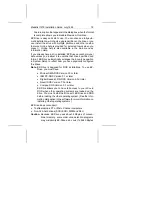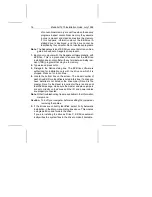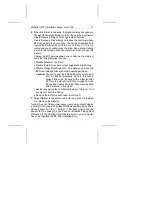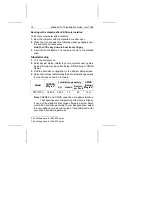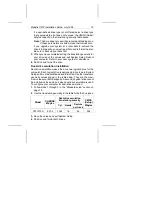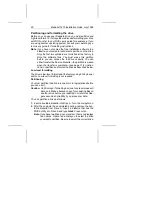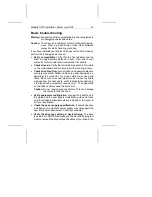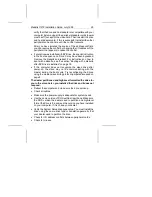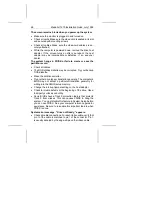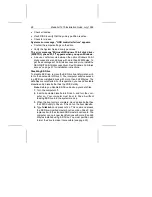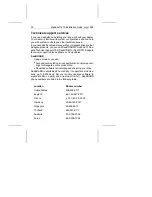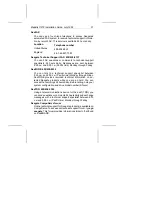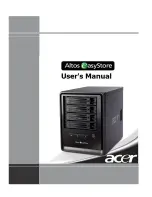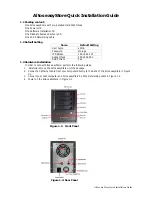
•
Make sure the power supply is adequate for system needs.
•
Reboot the computer and make sure the drive spins up.
The FDISK error message, “No Fixed Disk Present,” appears.
•
Check all cables.
•
Make sure the power supply is adequate for system needs.
•
Reboot the computer and make sure the drive spins up.
•
Verify the System Setup drive-type values.
•
Check for I/O address conflicts.
The drive does not format to full capacity.
•
Verify your computer’s System Setup drive-type values. One
of the following problems may have occurred: 1) the values
may be set for an incorrect drive type or translation geometry;
2) you may have entered a parameter value that exceeded the
physical capacity of the drive; 3) you selected a translation
geometry or drive type that does not take full advantage of the
drive’s capacity; or 4) the drive’s physical specifications ex-
ceed the translation geometry limits imposed by the BIOS.
Refer to “Standard setup” on page 18 if any of the first three
cases are true. Refer to “Configuring the computer” on page
14 if the last case is true.
If you reset the System Setup drive-type value, you must
partition and high-level format the drive again.
•
If you partitioned the drive into individual logical drives, you
may need to make the partitions smaller so that the computer
can use all of the drive’s capacity.
•
If your computer supports LBA mode, you may need to enable
an LBA mode function in System Setup to get the drive’s full
capacity. Refer to your computer’s reference guide.
•
You can use the EZ-Drive software to install the drive.
DOS messages “Disk Boot Failure,” “Non-System Disk,” or
“No ROM Basic - SYSTEM HALTED,” appear.
•
Reinstall the DOS system files using the DOS SYS utility.
Medalist 1270 Installation Guide, July 1995
27



